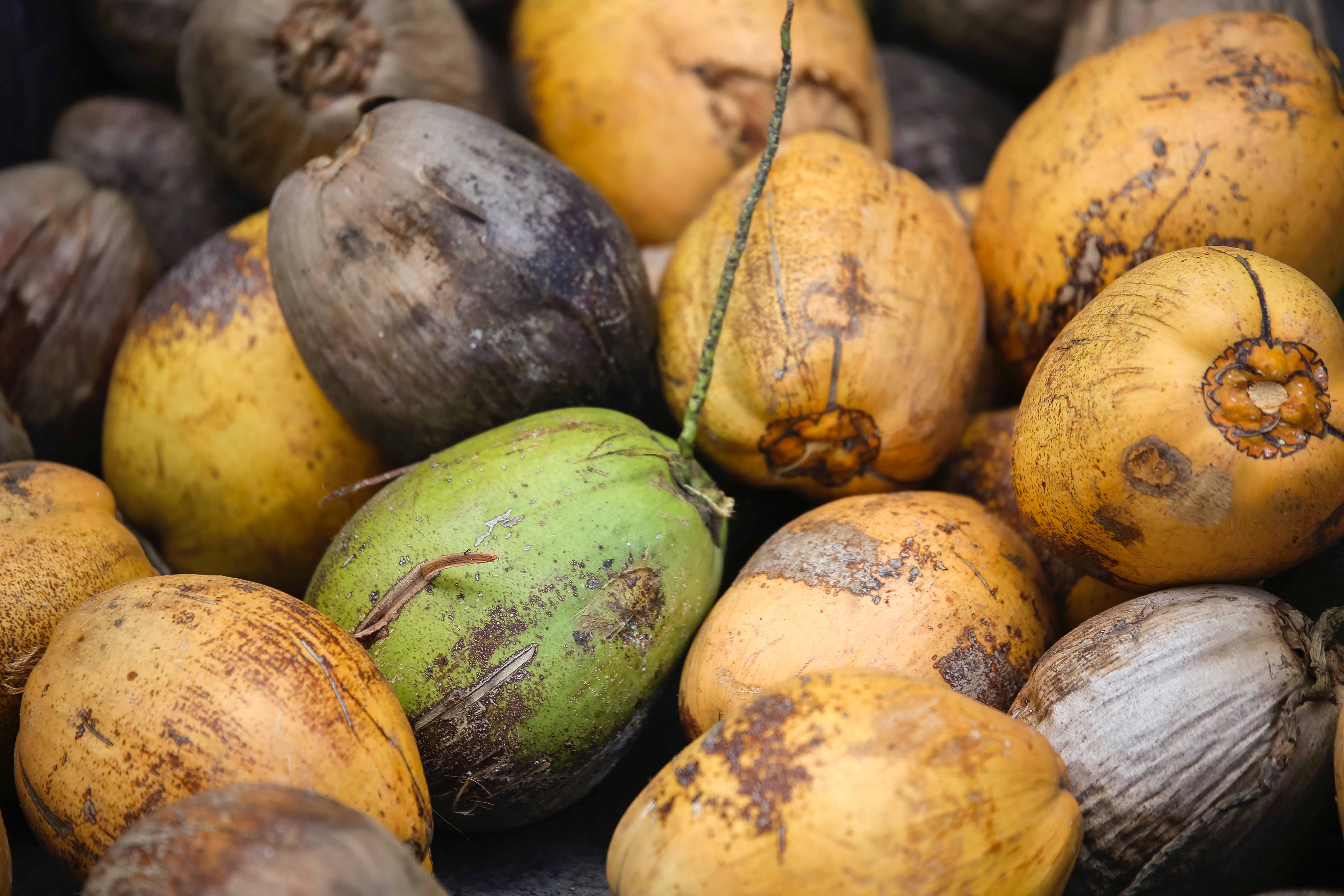A solid white mass at room temperature, coconut oil is immediately distinguishable from other commonly available oils.
Coconut oil’s uniquely high saturated fat content ( 90% of total fat) is the reason why it remains solid while just about every other oil on the shelves is liquid at room temperature.
What has helped Coconut Oil garner so much attention, however, is that some of the saturated fat it contains are chemically different than what we tend to find in the usual saturated suspects ( such as butter, red meat, high fat dairy etc).
These fats are known as Medium Chain Triglycerides, or MCTs, and they have been attributed with some health benefits owing to the unique way they are metabolized.
Keep in mind that many of the studies that have found benefits of MCT usage utilize oils that have quite a different fat profile to coconut oil and so that discussion is better left for another day.
The Coconut Oil Conundrum
Coconut oil’s unique fat profile , along with its exotic nature and the commercial exaggeration of its potential health benefits, have helped the oil gain incredible media attention over the past few years, with a feature on the Dr. Oz show among the most noteworthy.
You may have heard that coconut oil has miraculous effects on weight loss, diabetes or other chronic diseases.
These claims are not supported by strong scientific evidence yet they serve to perpetuate the mystique and consumer interest that surrounds the oil.
Coconut oil creates quite a conundrum for dietitians because traditional scientific evidence has shown us that excessive amounts of saturated fats are not helpful to our heart because they lower “good” cholesterol levels ( HDL) and raise “bad” cholesterol levels ( LDL).
As I mentioned though, much of the saturated fat in coconut oil is chemically different. This type of saturated fat, known as “medium chain triglycerides” is actually a smaller fat molecule that is more easily broken down in our bodies and may not be transformed as easily into harmful LDL cholesterol as a result.
To summarize thus far:
1) Coconut oil is very high in saturated fat, the same type of fat found in meat and dairy.
But
2) At least some of the saturated fat in coconut oil is a chemically different variety of saturated fat.
But what does the science say about how the fat in coconut oil affects us?
What We Know About How Coconut Oil effects us:
1) Coconut oil may slightly boost healthy cholesterol levels (HDL) when compared to high saturated fat alternatives like butter.
And
2) Coconut oil contains the types of fats known to raise our unhealthy cholesterol levels (LDL), but not quite as much as other similar high saturated fat items such as butter.
This means that coconut oil is certainly a better choice than butter, but may not be a better choice than olive oil, which is rich in heart healthy monounsaturated fats and backed by years of strong, high-quality research.
But Wait… The Evidence Is Mixed/Weak
A recent review of the evidence of by Ayres et al in 2016 ( which is also referenced on the Harvard School Of Public Health Website) concluded the following:
“Overall, the weight of the evidence from intervention studies to date suggests that replacing coconut oil with unsaturated fats ( ie: olive oil or other common vegetable oils) would alter blood lipid profiles in a manner consistent with a reduction in risk factors for cardiovascular disease.”
Their work, although far from perfect in its own right, essentially states that there is minimal evidence to suggests that coconut oil operates any differently than other rich sources of saturated fats and that it is not a strong choice to support heart health.
They essentially claim that the current available body of evidence supporting the use of coconut oil is weak, and fair enough it is.
Interestingly, however, a study released just a few months ago found that coconut oil may actually have similar effects to olive oil.
Again there are methodological limitations, but the ultimate point I am getting across here is that the overall body of evidence, in either direction, appears unconvincing.
Is coconut oil a super food? No.
Is it the worst thing ever? Also no.
Should You Use Coconut Oil
Coconut oil is expensive with a low smoke point ( which means it really is not that suitable to use for cooking above 350F).
It will also not magically cure diseases or help you shed unwanted pounds.
Is it better to use than butter? Absolutely ( maybe not for your wallet).
It is it better to use than olive oil? Probably not, but if you enjoy using it and you have a recipe that calls for it, that should not stop you from enjoying it.
Final Thoughts
No matter what oil you use you should be sure to control your quantity, as oil tends to be one of the top discretionary foods adding calories to the average Canadian’s diet.
Remember that many of the “healthy fats” found in oils are also found in more nutrient dense, satiating foods such as nuts, seeds and avocados.
Finally, I would like to remind you of the fact that, if you are an otherwise healthy person who eats well on a regular basis, it will matter much less whether you have coconut oil once a week, three times a week, or not at all.
Have coconut oil if a recipe calls for it, or if you are in the mood for it, not because it is a miracle food, because there is no good evidence to suggest that it is.
Until next time,
Andy De Santis RD MPH



